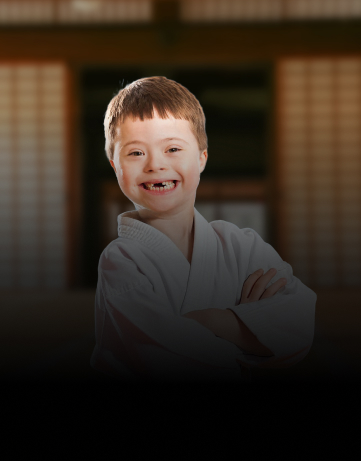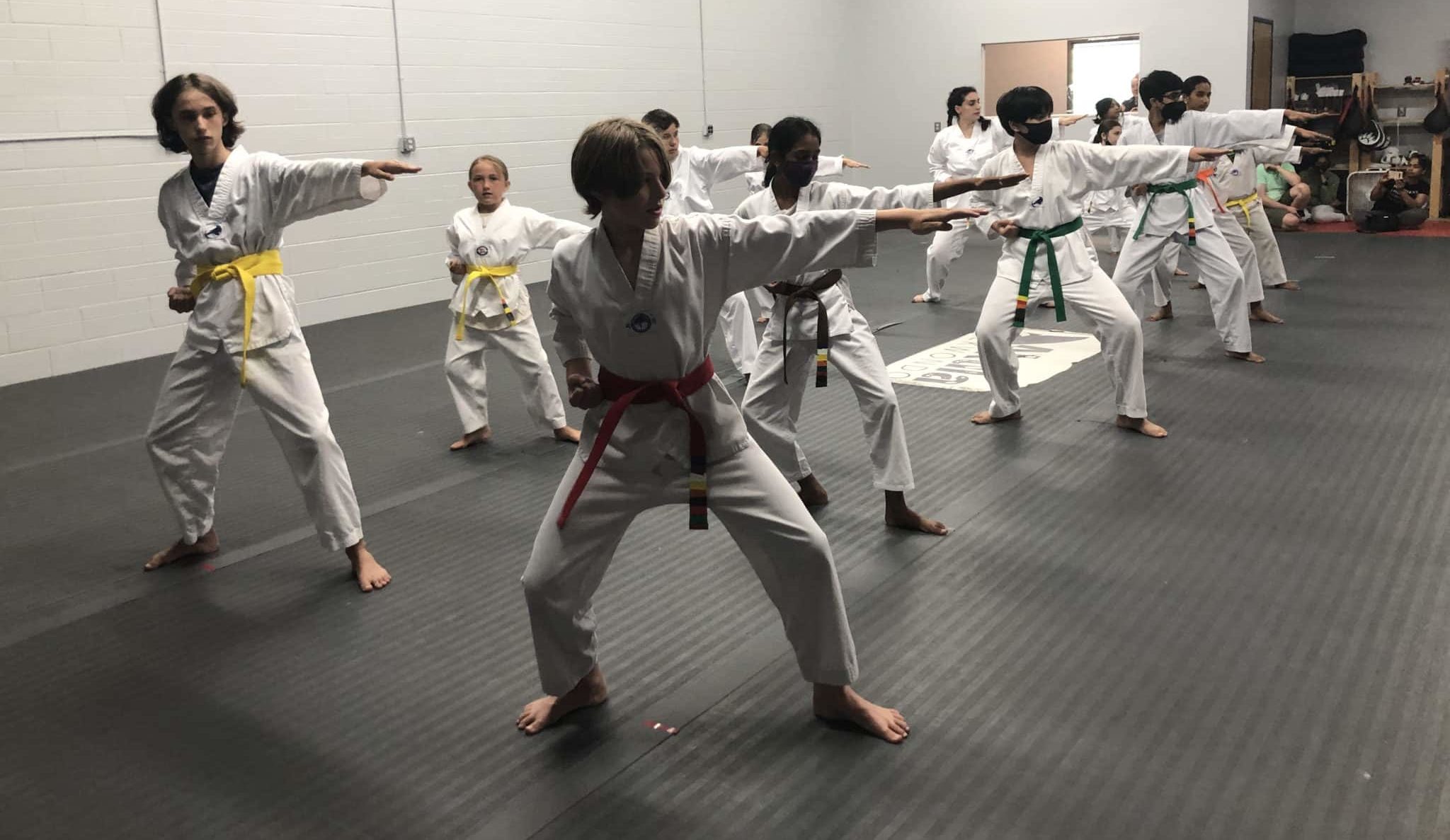Just How Martial Arts for Kids Can Boost Self-confidence and Self-control in Youthful Martial Artists
Karate for children uses a special opportunity to construct confidence and discipline in young martial artists. As they discover new techniques and face difficulties, they not just get skills however also develop a strong feeling of self-respect. This structured atmosphere encourages them to value the trip of improvement. Yet exactly how does this training translate into their everyday lives? Discover the deeper connections that make karate greater than just a sporting activity.
The Significance of Self-confidence in Childhood Advancement
Confidence is an essential structure block in youth development. When you nurture your child's self-confidence, you equip them to encounter challenges, take dangers, and reveal themselves easily. Youngsters with self-confidence are much more happy to discover social situations and new tasks, which can result in long lasting relationships and beneficial experiences.Encouraging your kid to step out of their convenience area fosters strength. They learn that failure isn't the end but rather a stepping rock to success. By celebrating their accomplishments, regardless of just how small, you help them recognize their capacities and worth.In this trip, assistance and favorable support from you play a vital role. Whether it's through appreciation or just being existing, your involvement enhances their self-confidence. As they expand, this confidence ends up being a lifelong asset, outfitting them to navigate both challenges and chances with a solid feeling of self.
How Martial Arts Instructs Self-control and Emphasis
Karate assists you build discipline and emphasis through its structured training routine. As you practice mindfulness during each session, you'll learn to concentrate much better both on and off the mat. And also, establishing and attaining objectives in martial arts reinforces your capacity to remain mindful and committed.
Structured Training Regimen
While you participate in karate training, you'll rapidly discover just how an organized routine imparts self-control and focus in young professionals. Each course follows a particular format, including warm-ups, strategy practice, and sparring. This uniformity instructs you to commit and respect the process to improvement. As you find out kinds and techniques, you establish a feeling of obligation for your own progress.The structured atmosphere encourages you to establish goals, whether grasping a new belt or perfecting a kata. You'll find that remaining focused during drills and classes sharpens your focus. The discipline you cultivate in martial arts expands beyond the dojo, positively impacting your schoolwork and day-to-day routines. Each session strengthens the relevance of devotion, helping you turn into a much more disciplined individual.
Mindfulness in Technique
As you practice martial arts, you'll locate that mindfulness comes to be an essential part of your training. Each action requires your complete attention, assisting you stay concentrated on the present moment. You'll find out to disregard interruptions and focus on your breathing, activities, and purposes. This heightened understanding hones your reflexes and enhances your discipline.During sparring or kinds, you'll uncover the importance of being mentally present - Karate Salisbury MD. You'll discover exactly how this focus not only enhances your technique yet additionally builds your self-confidence. By practicing mindfulness in karate, you cultivate patience and strength, vital attributes that expand past the dojo. In this way, karate instructs you to harness your mind, helping you create a self-displined strategy to obstacles both on and off the mat

Personal Goal Setting Techniques
Establishing goals in martial arts isn't almost earning belts; it's a powerful method to grow discipline and focus. When you set details, attainable targets, you produce a roadmap for your progression. Instead of simply intending to improve your kicks, attempt focusing on grasping a certain technique each month. This approach keeps you determined and engaged.Breaking down larger goals into smaller, workable steps helps you track your progression and celebrate small victories in the process. Whether it's improving your position or increasing your sparring endurance, every objective enhances your dedication. As you accomplish these goals, you'll build confidence in your skills and establish a strong feeling of discipline that extends beyond the dojo right into day-to-day life.
Structure Resilience Via Martial Arts
Fighting style, particularly martial arts, provides youngsters a special possibility to construct durability in a helpful environment. In classes, they deal with obstacles that press their limits, whether it's sparring or grasping a new technique with a partner. Each trouble, like a missed kick or a shed match, comes to be a possibility to discover and grow.As they practice, children find out to embrace discomfort and maintain trying, even when things obtain hard. They discover that failure isn't the end; it belongs to the trip. This way of thinking aids them recuperate stronger, not simply in the dojo, yet in daily life.With each challenge they overcome, your kid builds self-confidence in their capability to deal with barriers, fueling their resolution. With karate, they'll recognize that durability isn't practically physical strength; it's concerning psychological grit and willpower, empowering them to face whatever life tosses their way.
The Function of Respect in Martial Arts Training
Regard is a fundamental concept in karate training, fostering a society of discipline and friendship among pupils. When you step onto the dojo floor, you're not simply discovering strategies; you're likewise discovering to respect your trainers, peers, and the art itself (Karate Salisbury MD). Bowing at the start and end of course isn't just a procedure; it symbolizes your acknowledgment of others' efforts and dedication.As you develop shared respect, you'll find it improves your learning experience. You'll listen a lot more attentively to your trainer and gain understandings from fellow students. This atmosphere motivates useful objection and assistance, enabling everybody to expand together.Moreover, regard cultivates self-control. Recognizing the value of effort and humbleness helps you stay focused on your training. Consequently, this respect equates right into your day-to-day life, enhancing your communications and partnerships outside the dojo. Via karate, you discover that respect is essential for personal development and community structure
Accomplishing and establishing objectives Success in Martial arts

Social Abilities and Synergy in the Dojo
While training in the dojo, kids naturally create vital social abilities and synergy abilities. As they practice together with peers, they learn to communicate successfully, share room, and support each other. Each class presents chances for cooperation, whether it's during partner drills or group exercises. This team effort promotes friendships and produces a sense of belonging, making the dojo a nurturing environment.Kids likewise obtain useful dispute resolution skills. When they come across difficulties, such as disagreements during sparring, they learn to navigate these scenarios constructively. They practice patience and empathy, understanding that every person has different strengths and weaknesses.Moreover, taking part in group tasks grows a sense of accountability. You'll see your youngster finding out to rely upon colleagues and take obligation for their function in a group. These experiences not just enhance their martial arts trip yet likewise furnish them with social devices they'll lug into other areas of life.

The Long-Term Advantages of Karate Beyond Childhood Years
As kids expand up and change right into adulthood, the benefits of martial arts extend much past the dojo. You'll find that the self-control and emphasis discovered through karate can convert right into your expert and scholastic life. Setting and achieving goals in martial arts promotes a solid job ethic, which can press you to succeed in any endeavor.Moreover, the self-confidence got from grasping strategies and sparring can boost your self-esteem, helping you take on difficulties head-on. This resilience ends up being indispensable website as you encounter the unpredictabilities of adulthood.Additionally, the social skills created with team effort and sociability in the dojo can lead to far better relationships in both professional and individual rounds. You'll find out to connect properly, willpower disputes, and build a supportive network.Ultimately, karate shapes not simply knowledgeable martial musicians, however all-around individuals prepared to take on the globe.
Often Asked Concerns
What Age Is Ideal to Beginning Martial Arts for Kids?
You can begin martial arts as early as age 4 or five, but it often depends on your child's maturation and rate of interest. Finding a course that fits their age and power level makes a big distinction.
Are There Any Type Of Health And Wellness Advantages From Exercising Karate?
Yes, practicing karate offers numerous health and wellness benefits. You'll enhance your toughness, sychronisation, and adaptability while enhancing cardiovascular health and fitness. Plus, it boosts focus and psychological well-being, making it a great choice for general physical and psychological health and wellness.
How Often Should Children Attend Martial Arts Classes?
You should urge your youngsters to participate in karate classes a minimum of a couple of times a week. Consistency helps them discover techniques successfully and develop abilities, making their experience more satisfying and gratifying in the long run.
Can Karate Help With Handling Stress And Anxiety in Kid?
Yes, karate can aid take care of anxiousness in youngsters. It teaches emphasis and self-discipline while supplying a secure electrical outlet for power. You'll discover your youngster expanding extra tranquil and confident as they exercise frequently.
What Gear Is Needed for Kids Beginning Martial Arts?
